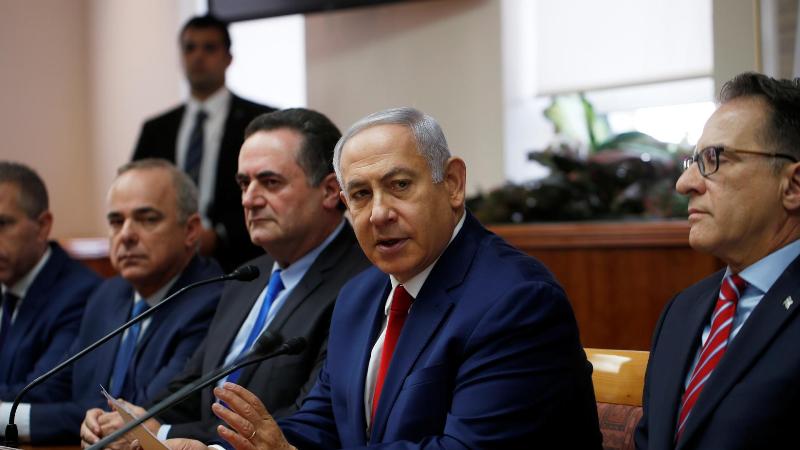The Zionist regime has based its policies on assassinating the influential personalities of the Muslim and Arab world including Palestinians since the end of the Second World War and concurrent with the start of the migration of Jews from other countries to Palestine. The formation of terrorist organizations such as Haganah and Irgun by the first generation of Israelis aimed to create intimidation and coercion among the Palestinian nation. They were pursuing the same objective and slogan: more murder equals more security. Since 1920 when the forced migration of the Jews from the West to Palestine accelerated, leaders of Zionist movements were emboldened to kill more Palestinians. This resulted in the assassination of tens of thousands of defenceless people of Palestine in the hands of Zionist terrorists. Since 1950, the Mossad organization established as an intelligence and spy service by the then Israeli prime minister David Ben-Gurion, three professional terrorist units have started their activities under the direct supervision of the Israeli prime minister and under the control of Mossad. They are: Kidon, Unit 8200 and Sayeret Matkal. These three units have gathered the most skillful and trained terrorists equipped with the latest technology and tools to pursue several objectives in their agenda: First, to assassinate the filed leaders in Palestine and other Arab and Muslim countries who are opposed to the Zionist regime inside and outside of Palestine; second, to conduct terrorist operations in the nuclear and military bases of Muslim countries opposed to Israel; third, to assassinate Muslim and Palestinian scientists and thinkers; and finally, to assassinate anti-Israel military figures and scientists in the Muslim world. These are parts of the mission defined for Mossad.
This terrorist organization has a monitoring unit which keeps a watchful eye round the clock on the content of the target media and field information, movement of scientists and military officials of countries opposed to the Zionist regime across the world.
The methods of the organized assassination of Mossad are difference in any case depending on the significance and social and international status of their target. Generally, Mossad and its subsidiary assassination teams and units employ voiceless assassination tactics such as the use of biological agents as well as assassination with guns, explosion and destruction of sensitive places of the target countries.
There are more than seven thousand permanent skilful forces as well as 14,000 contractual employees who serve the Mossad terrorist organization. They enjoy strong physical power for the conduct of complicated and sophisticated operations as well as high-calibre assassinations which are taken under the direct supervision of the prime minister, defence minister and the chief of Mossad after careful simulation and drills with a minimum margin of error.
During the past 70 years, Mossad terrorists have conducted more than 2,700 terrorist operations overseas against anti-Israel personalities which have resulted in the murder of more than 28,000 thinkers and elite members of the Muslim world and Palestine.
It has been reported that Mossad terrorists have assassinated more than 500 Muslim and Arab nuclear scientists and elite scholars in the past decades in view of the absolute silence of the authorities of the Zionist regime.
Unfortunately, American and other Western intelligence services provide Mossad with full intelligence and logistical support. Therefore, organized assassinations of Mossad are undertaken in full coordination with the Zionist regime and Western and American spy organizations.
One of the other activities of Mossad is to use diplomats as a cover for its terrorist activities. They help Mossad recruit spies and mercenaries. Embassies of the Zionist regime in other countries of the world have turned into spy dens against target countries.
The annual budget of Mossad exceeds three billion dollars with the possibility of an increase by two times depending on the security sensitivity of the case and the place of assassination.
During the past four decades, due to the silence of the United Nations, the EU and the United States, Mossad has stepped up its terrorist operations in other countries mainly targeting Muslim scientists and elite scholars. The reason is that the Zionist regime never wants Muslim and Arab countries especially those against Zionism to fully access nuclear and military technologies. In fact, the security and military strategy of the Zionist regime is based on maintaining supremacy in the nuclear and military technologies, guaranteeing the sustainable security of the Zionist regime, weakening countries that support the Palestinian resistance movement and combating Palestinian and Muslim anti-Zionist activities.
Notwithstanding, Mossad has faced failures while assassinating some influential Palestinian, Arab and Muslim personalities as the methods employed by Mossad terrorists are totally known to some of the region’s intelligence services.










0 Comments